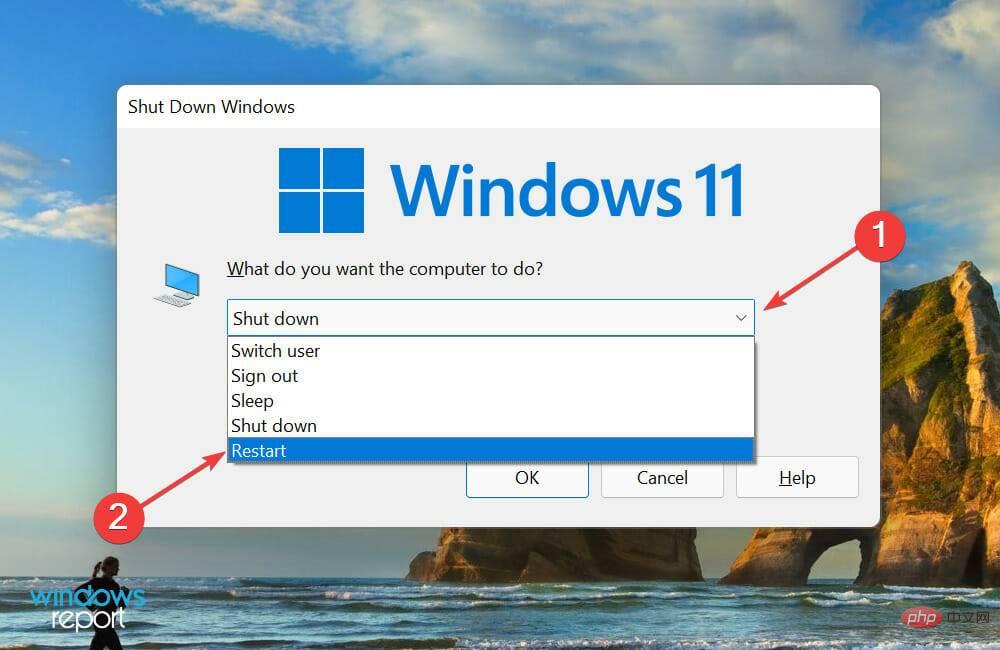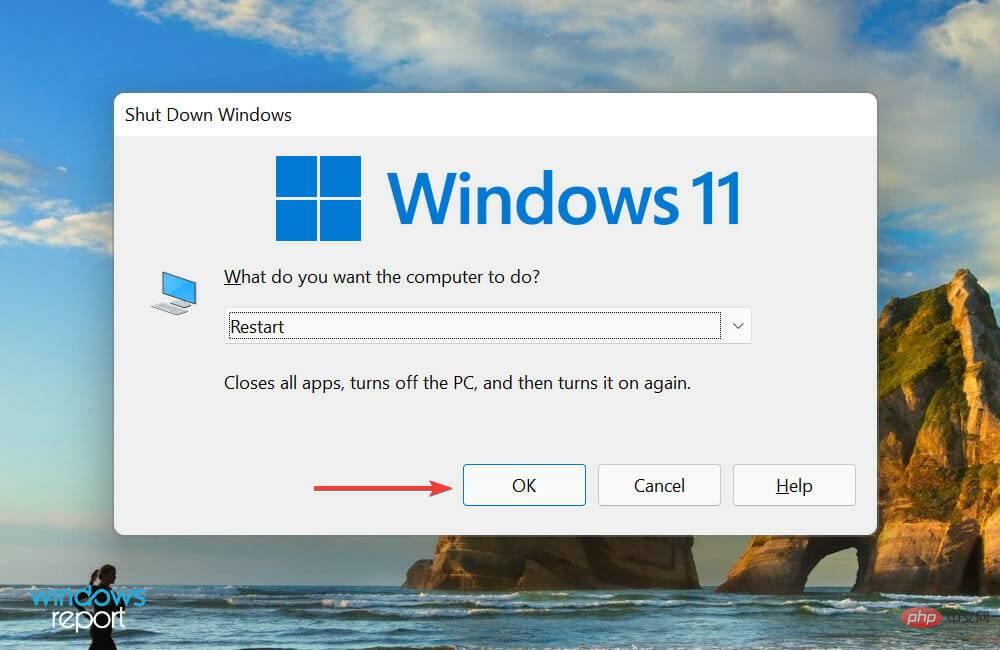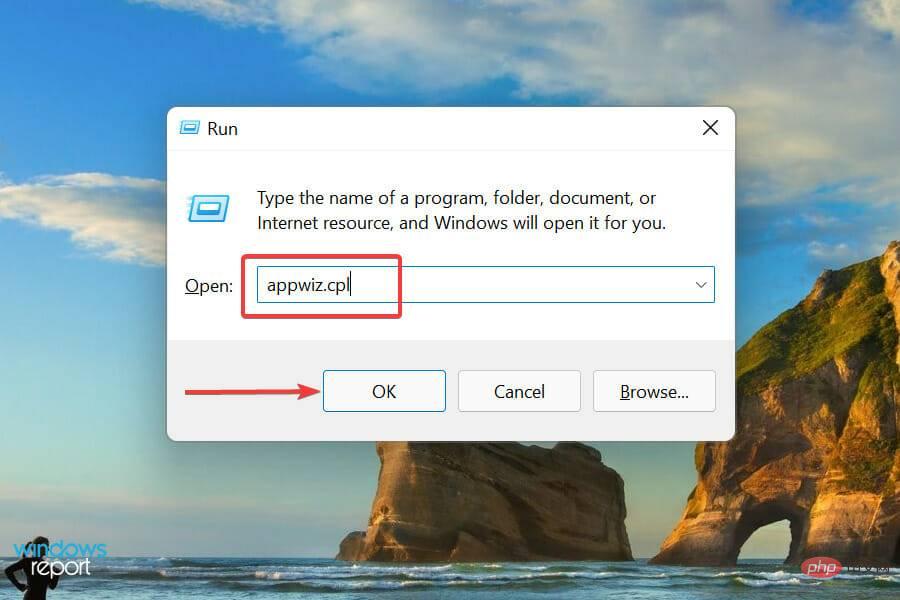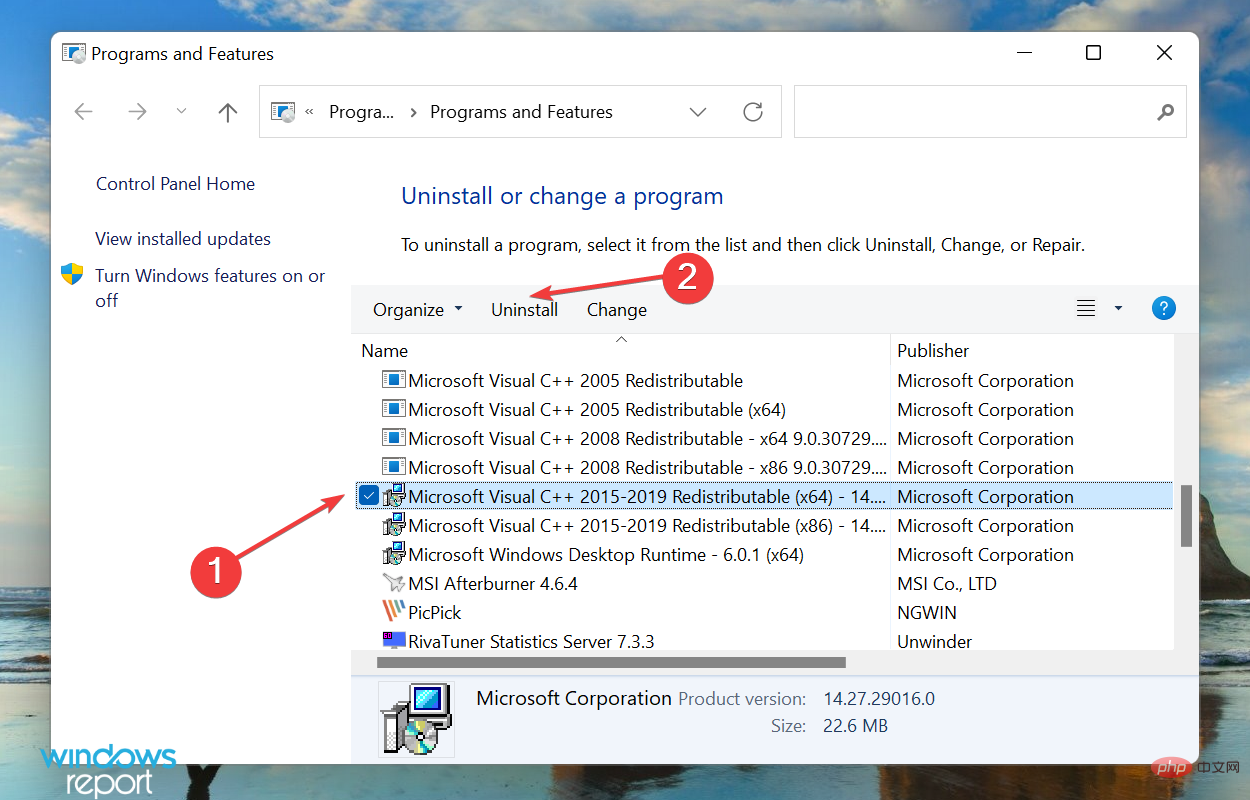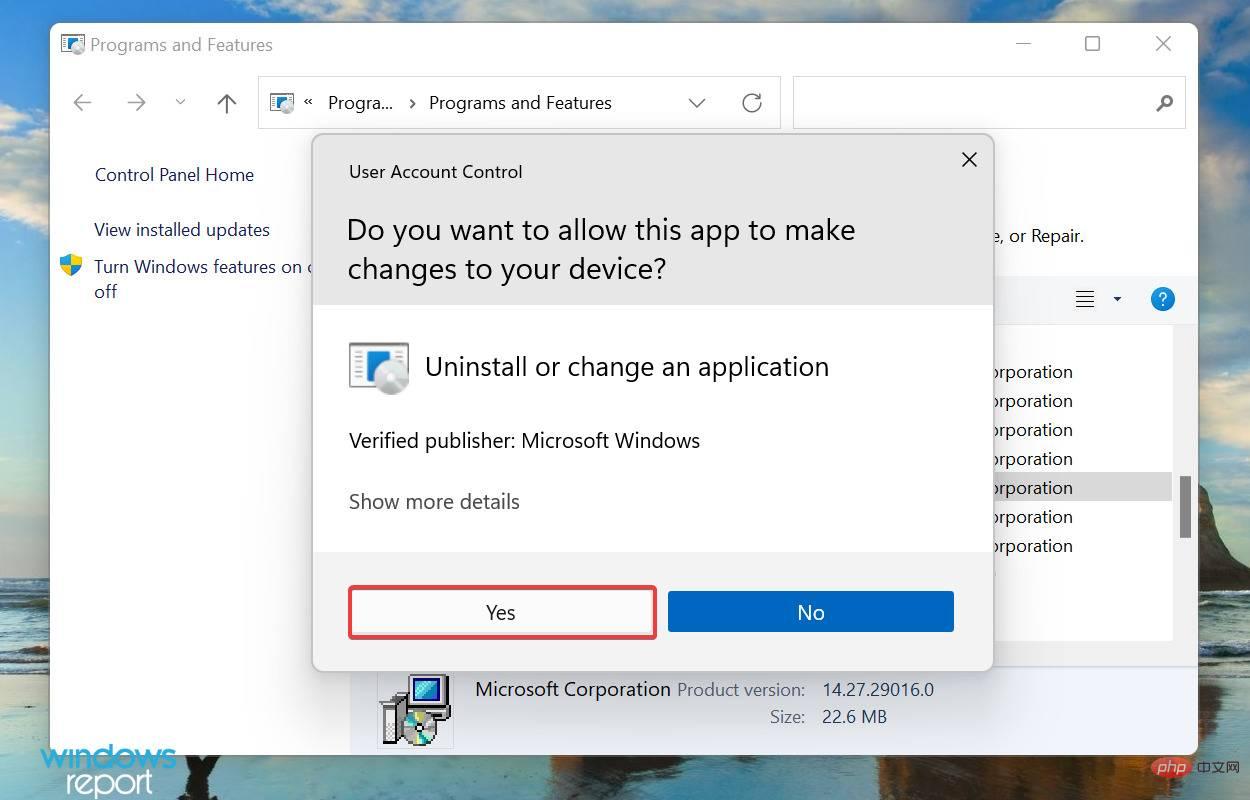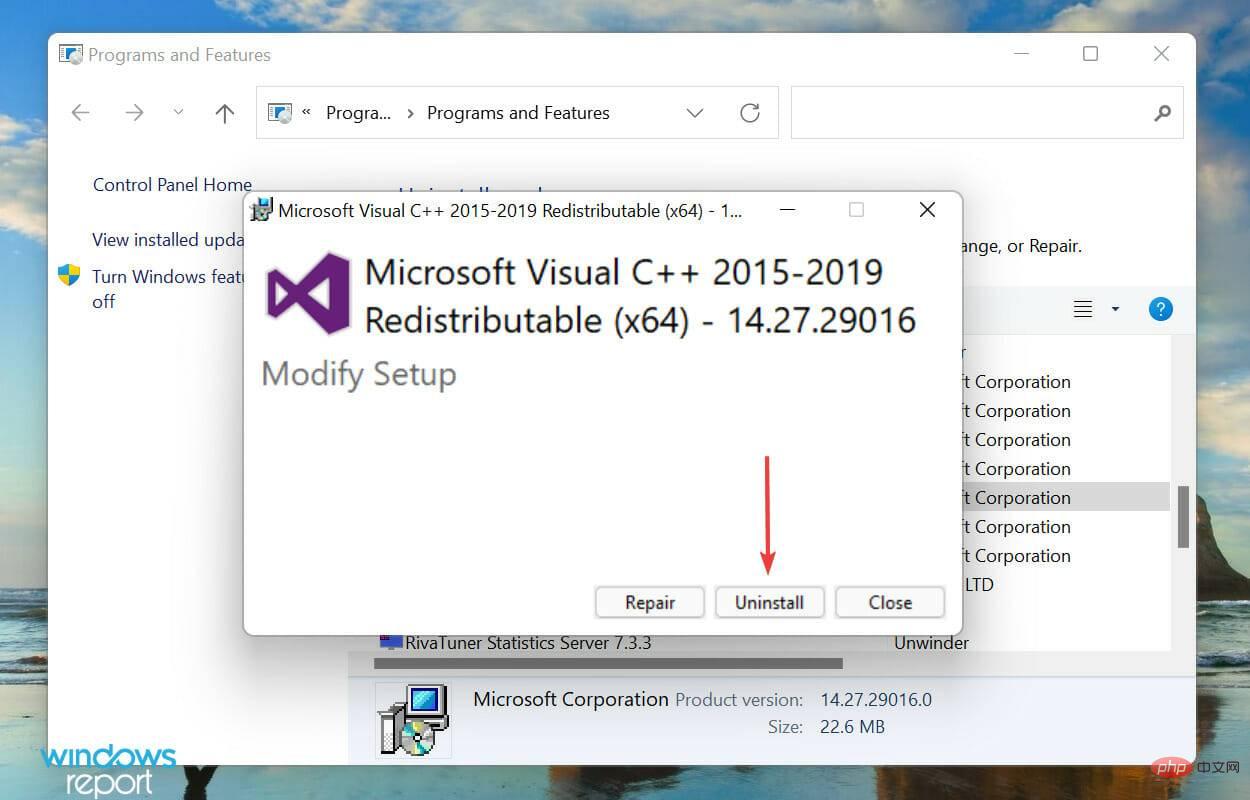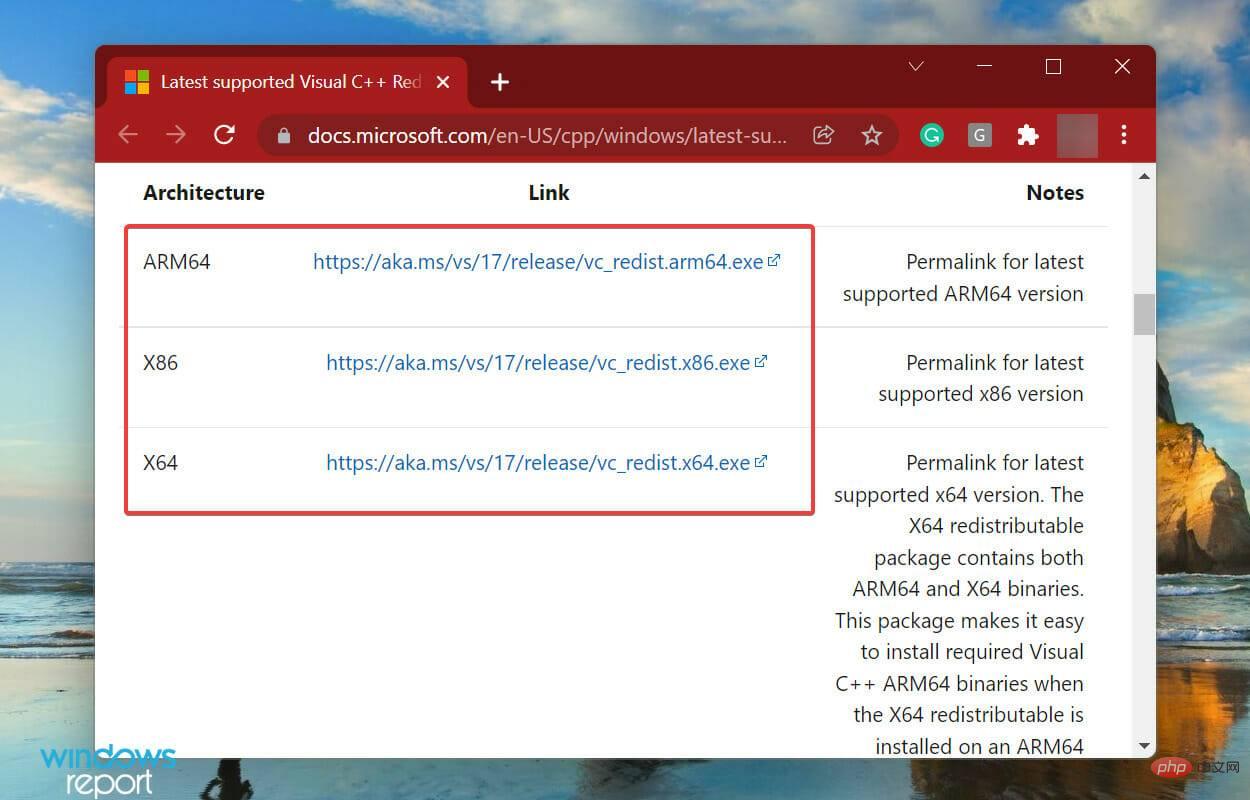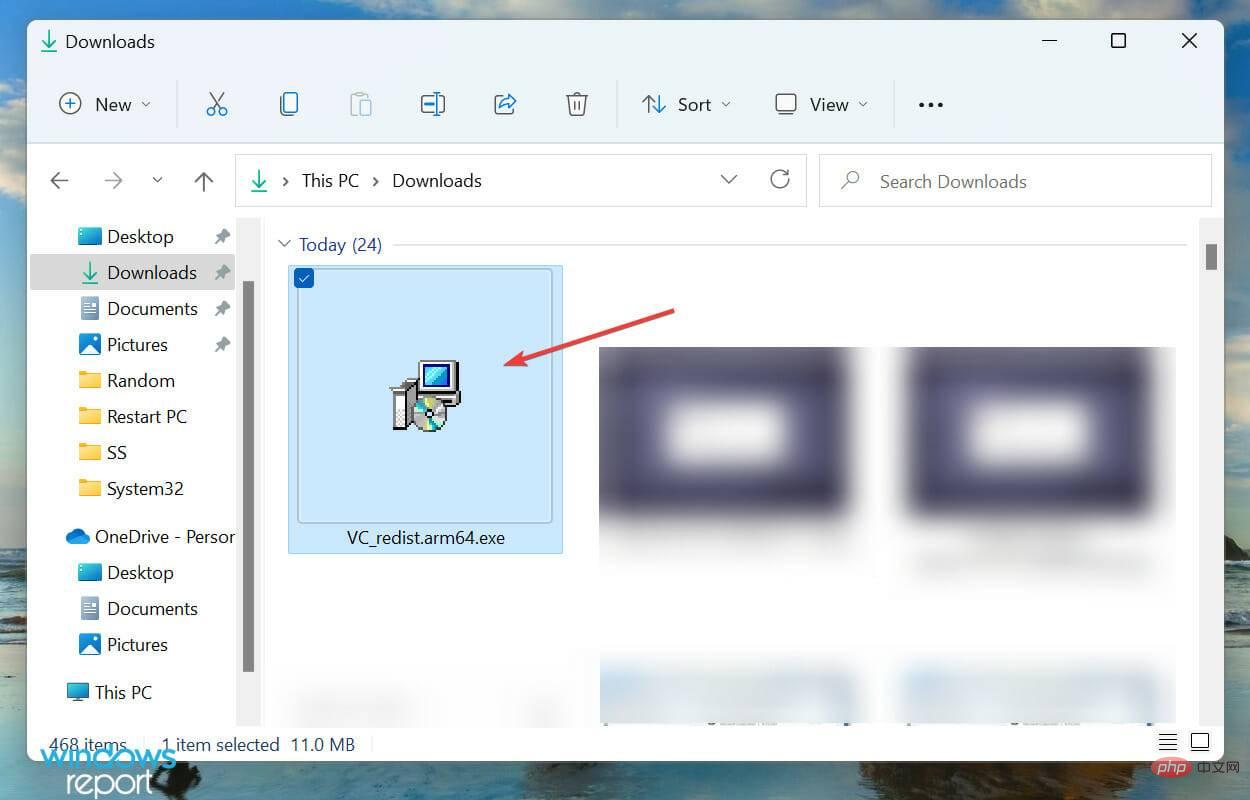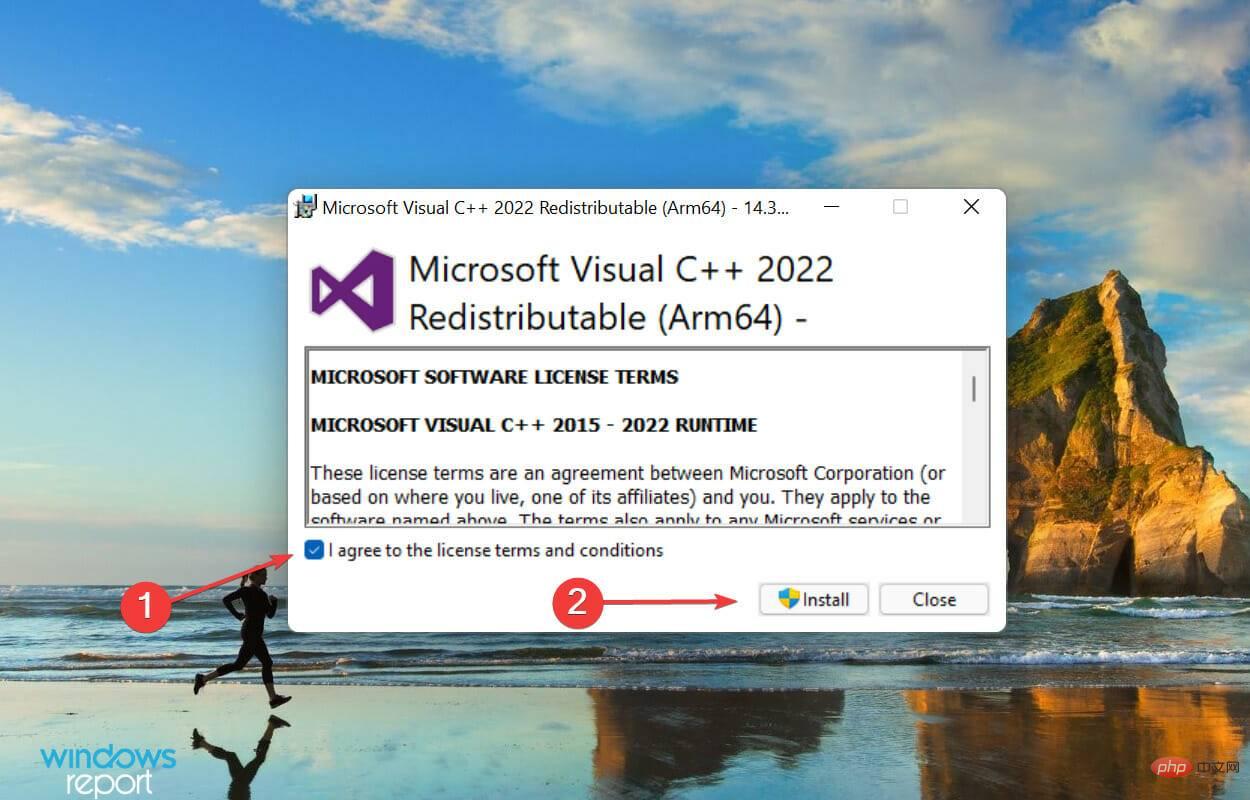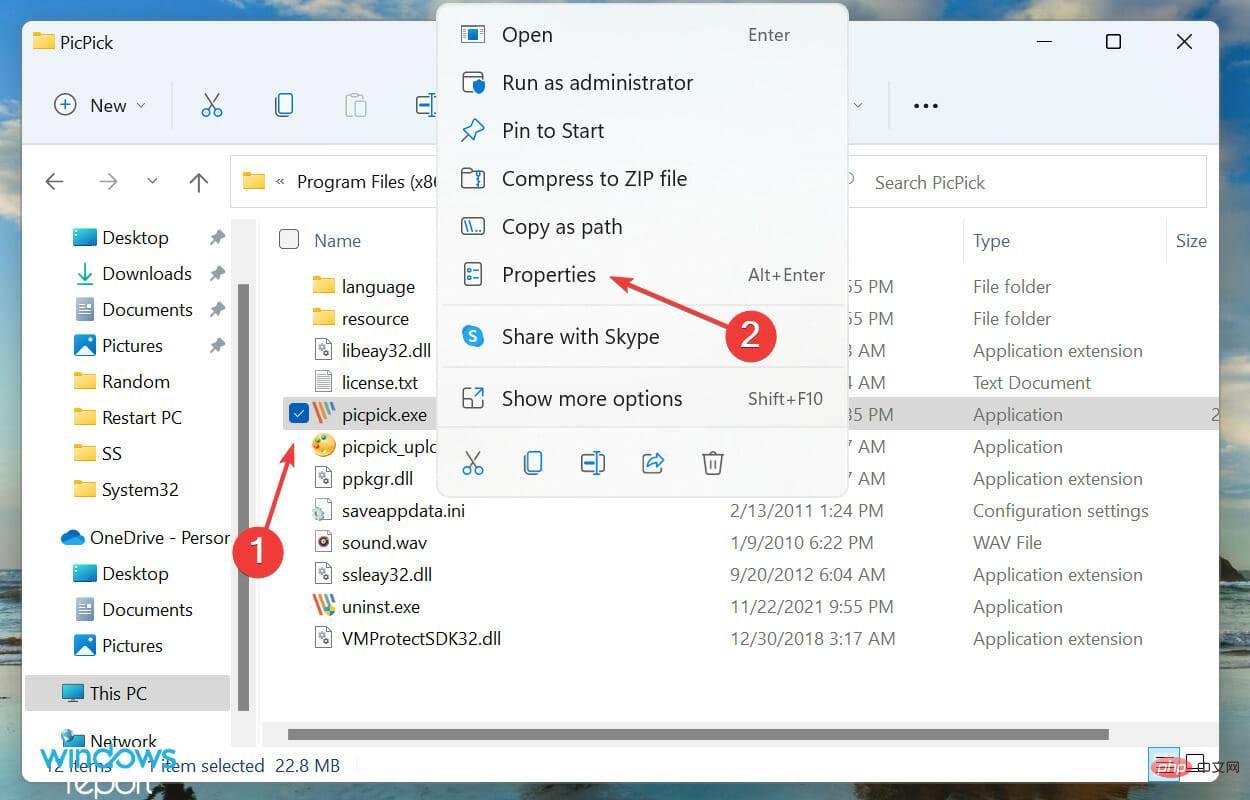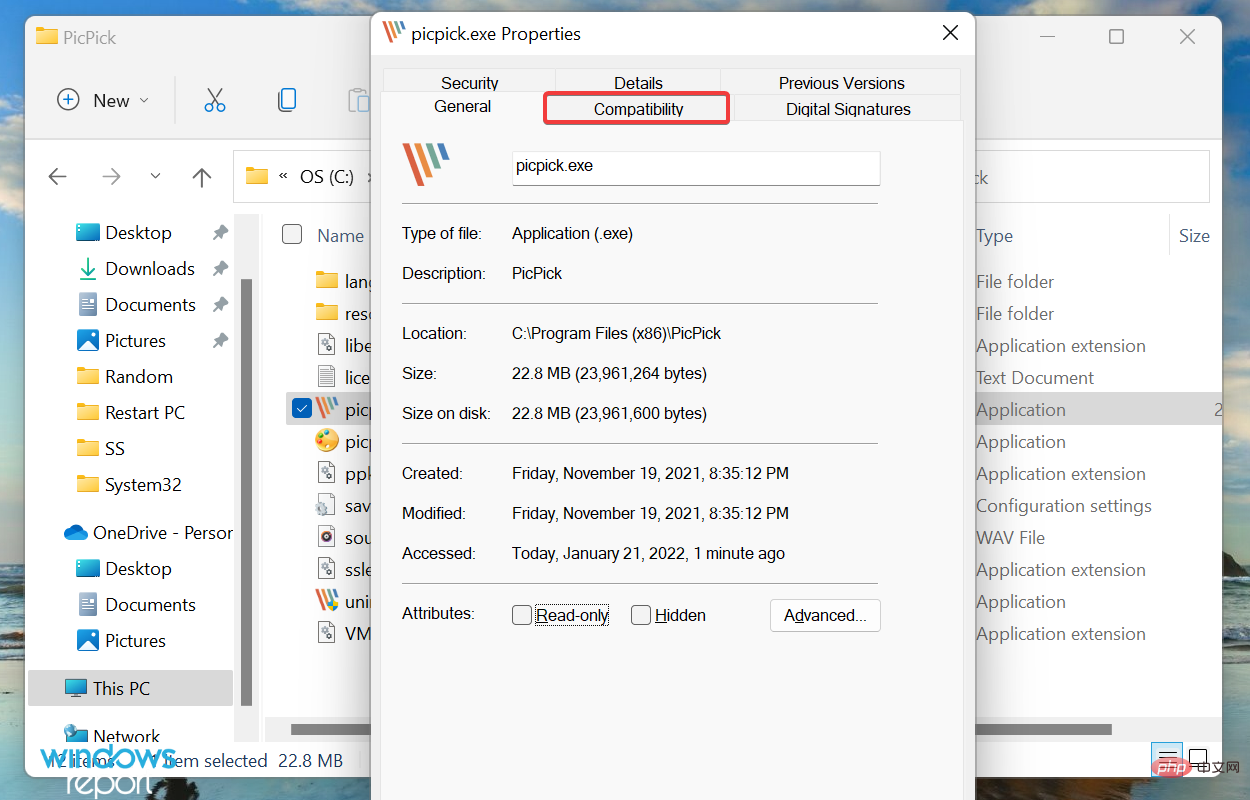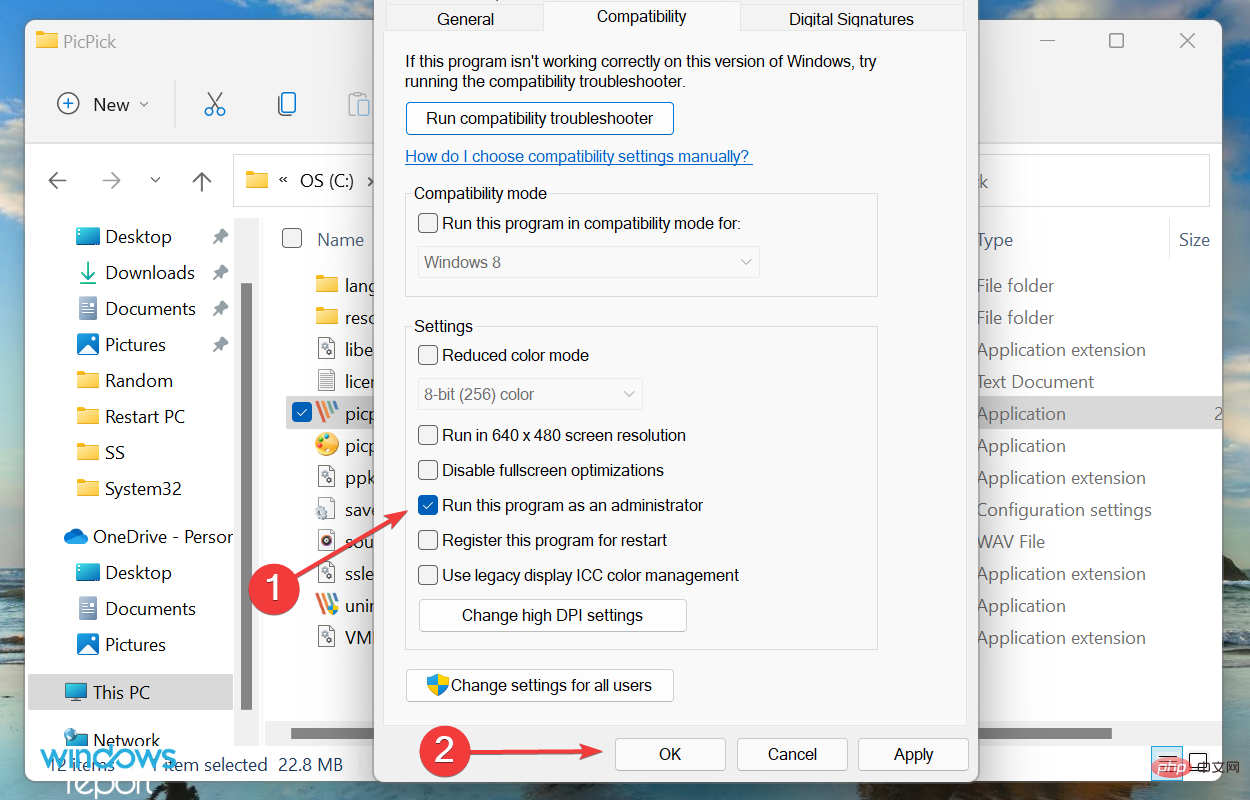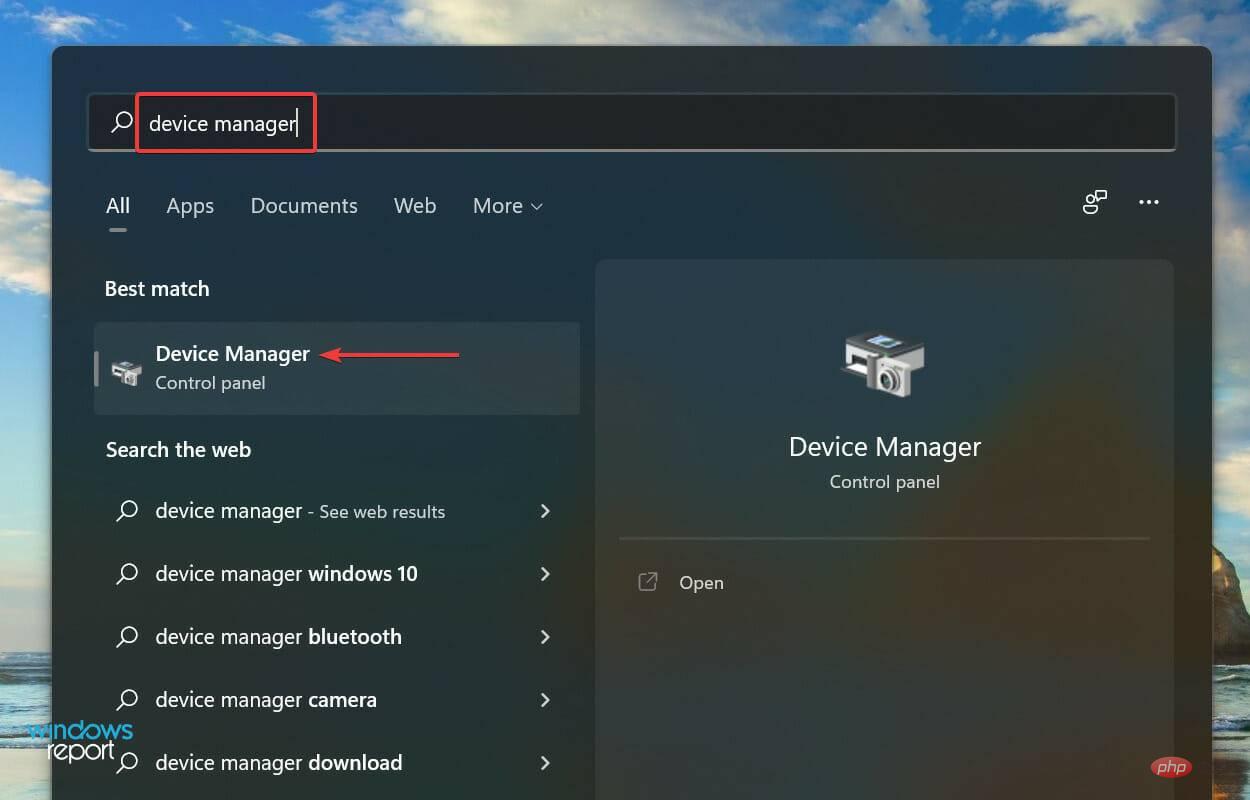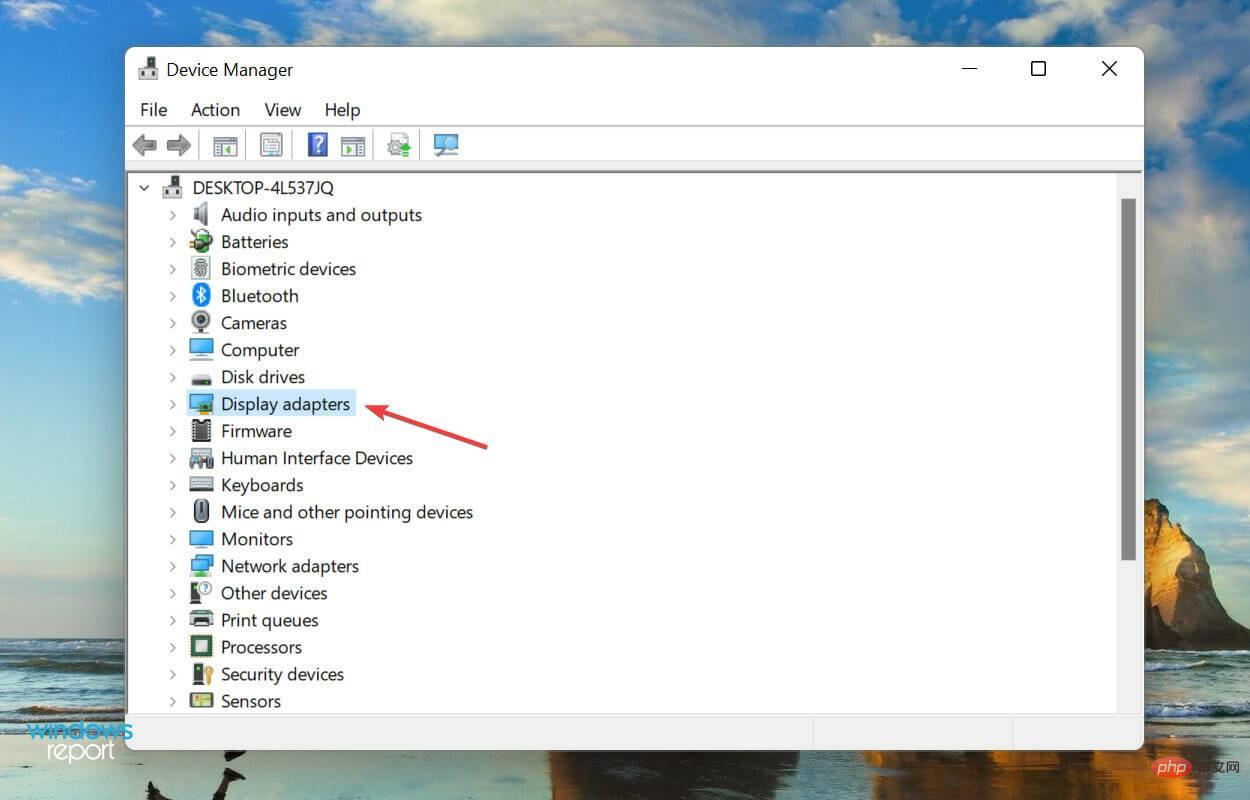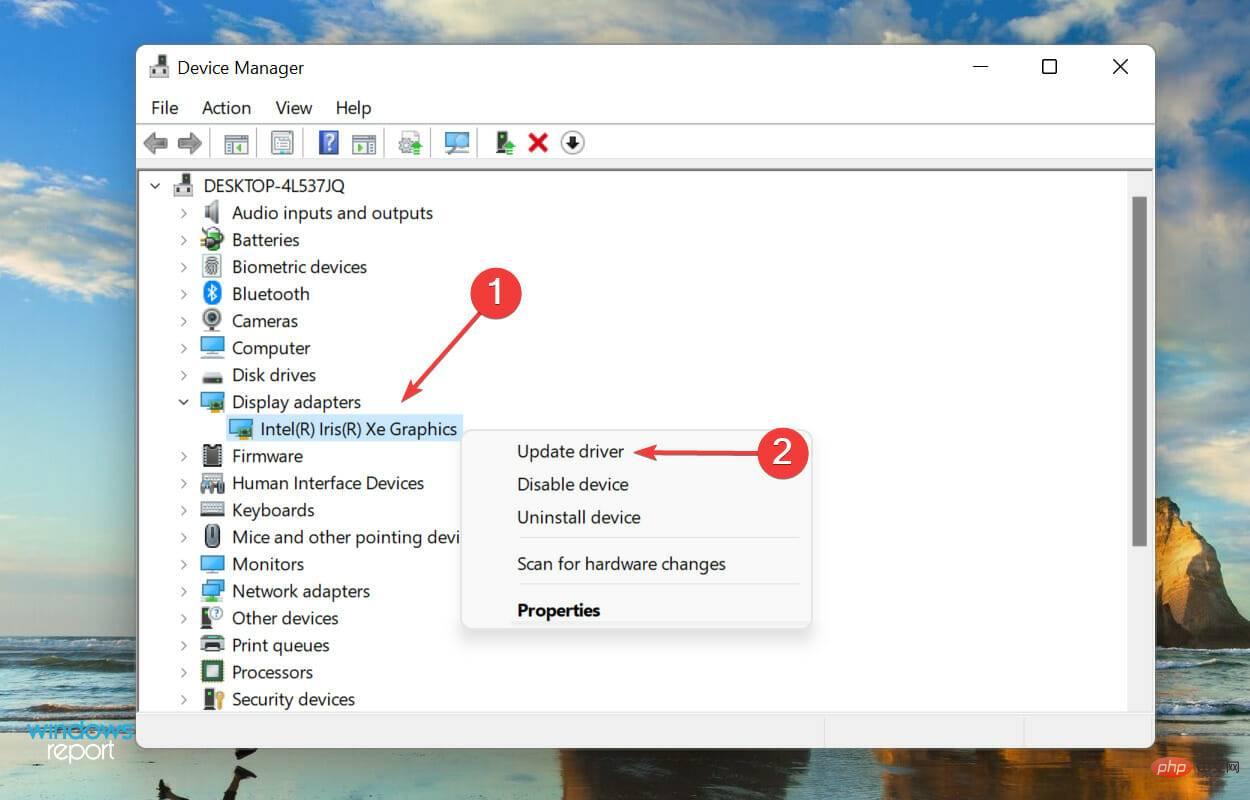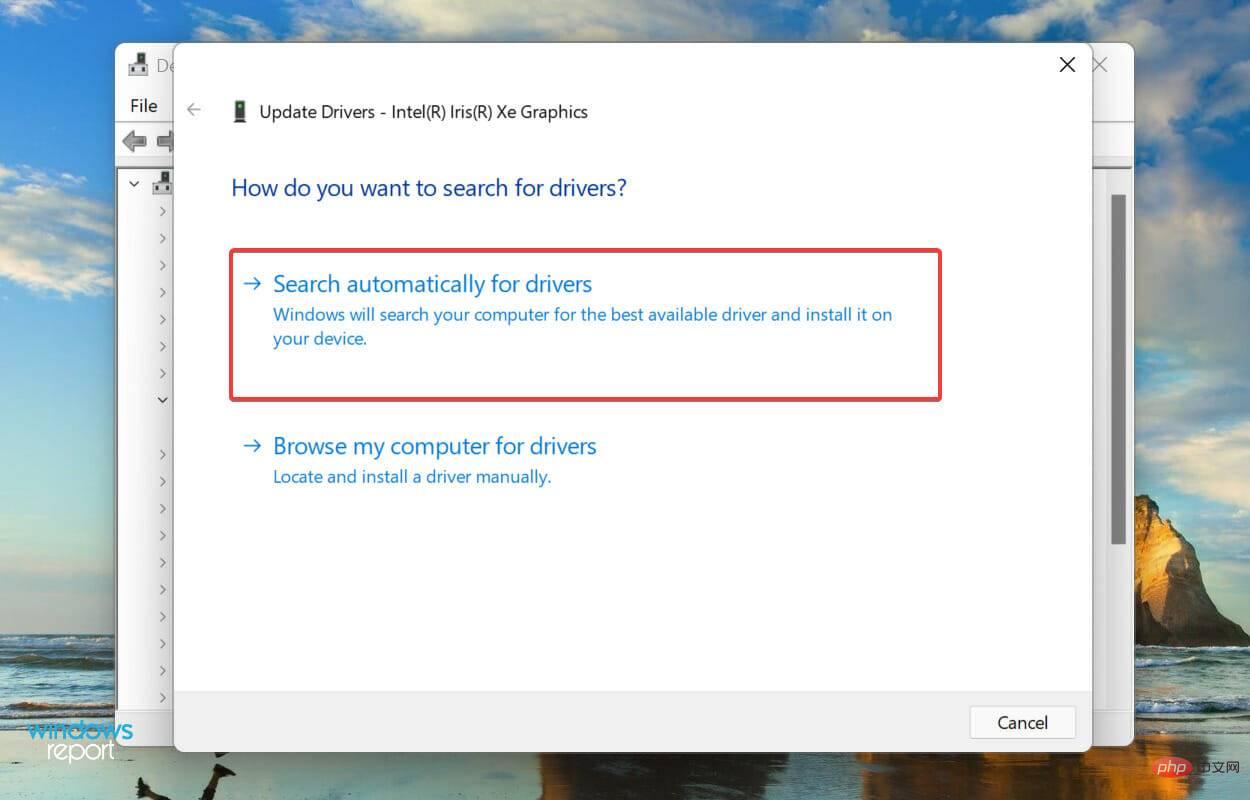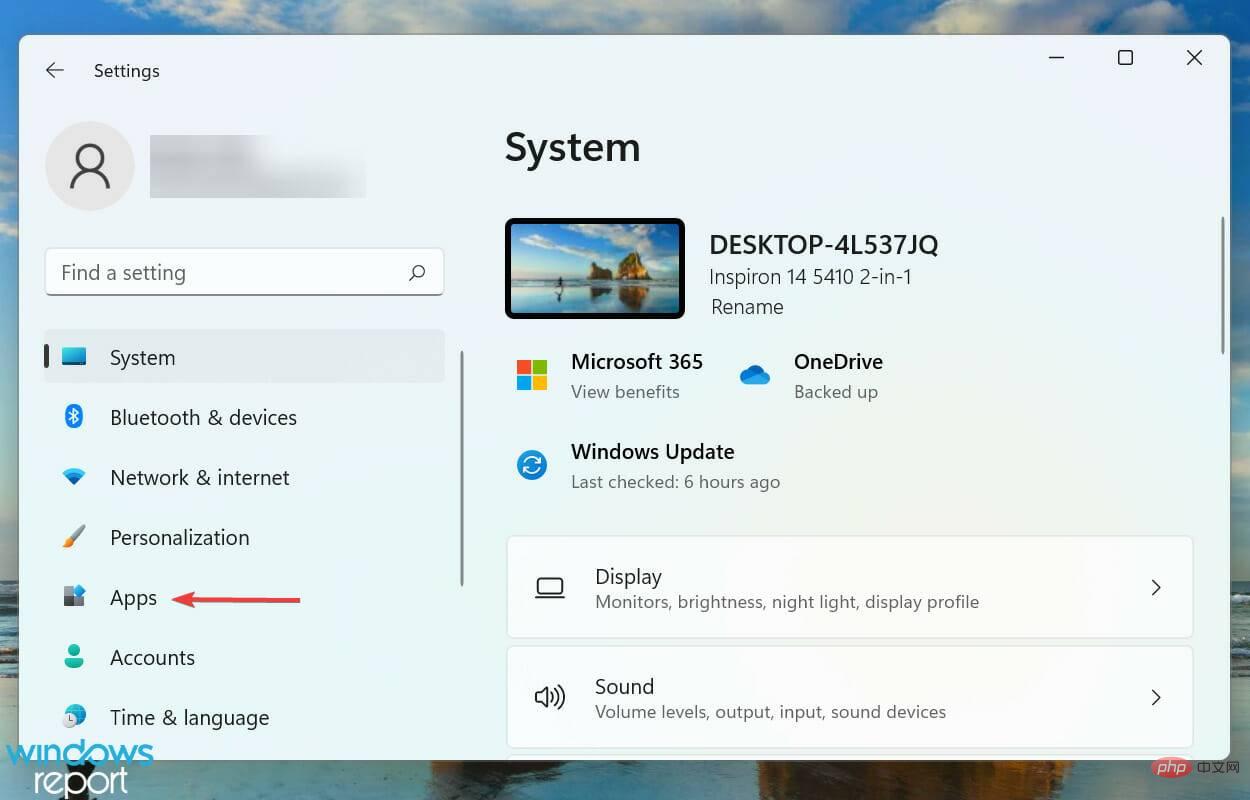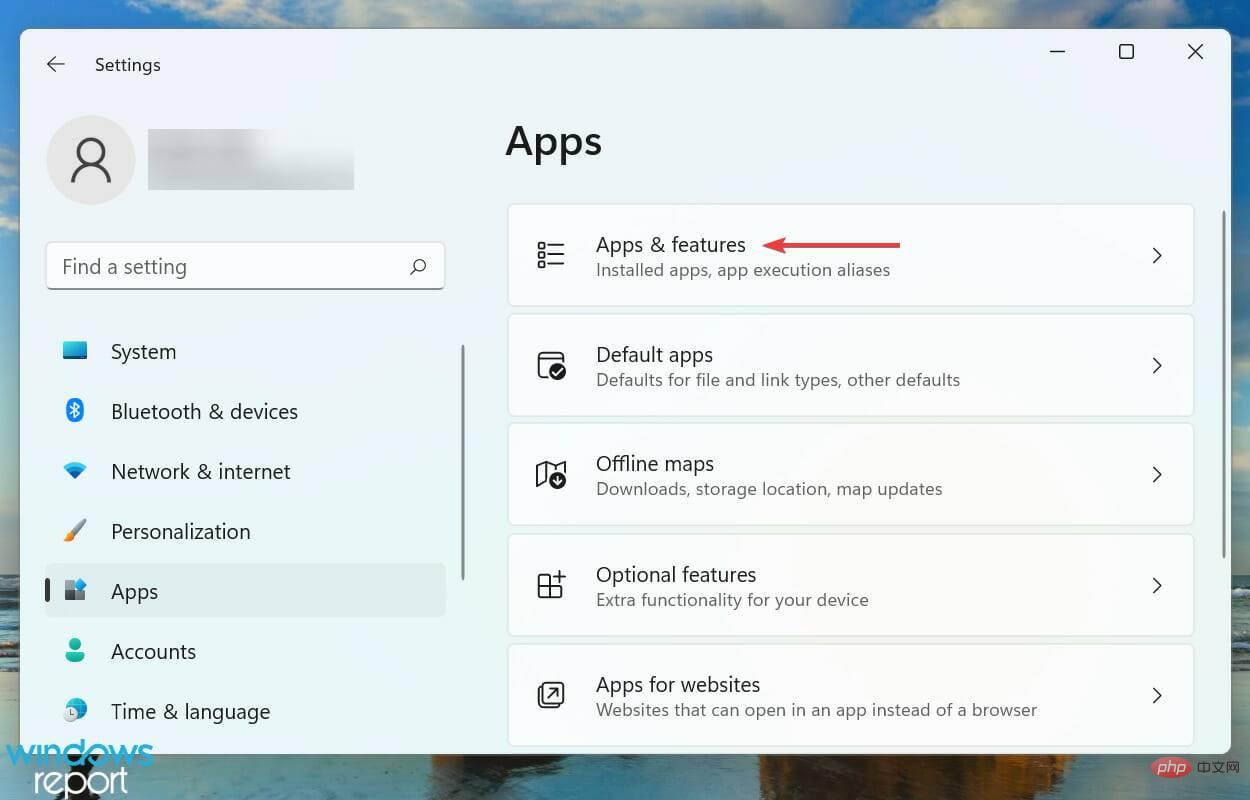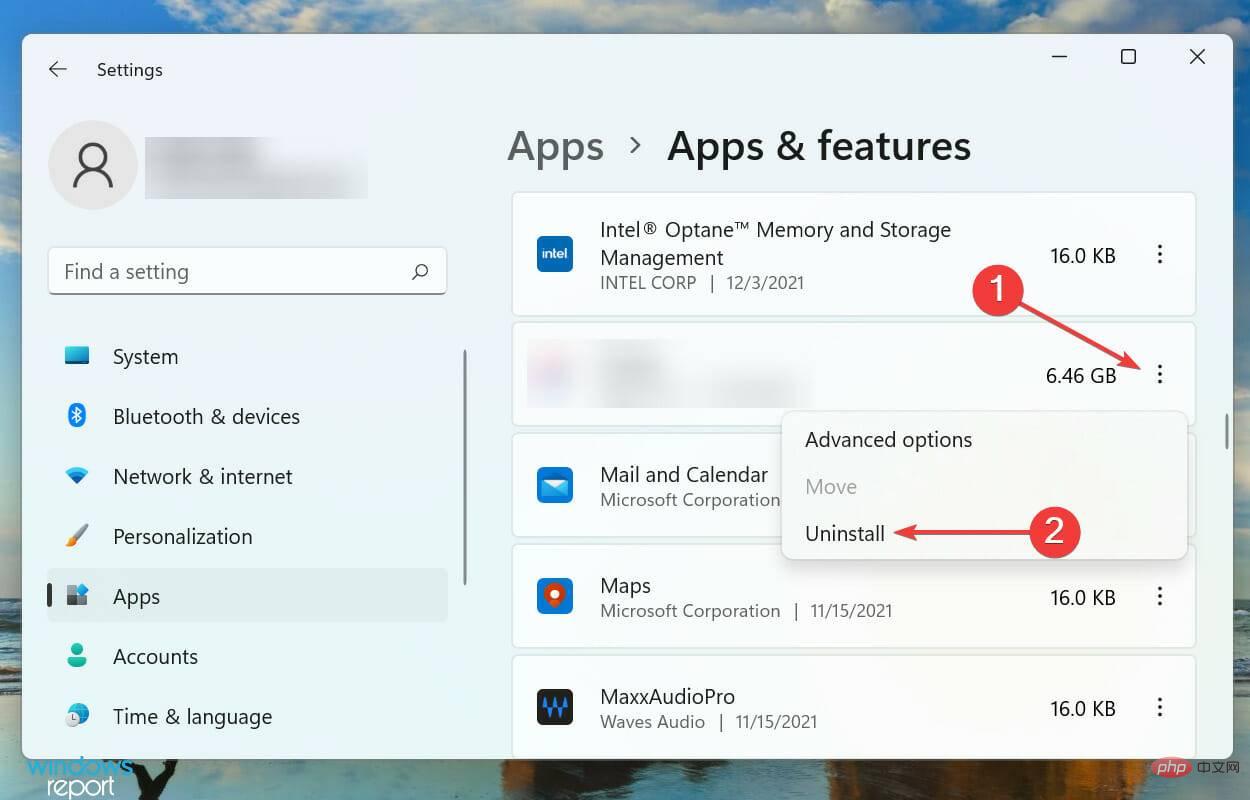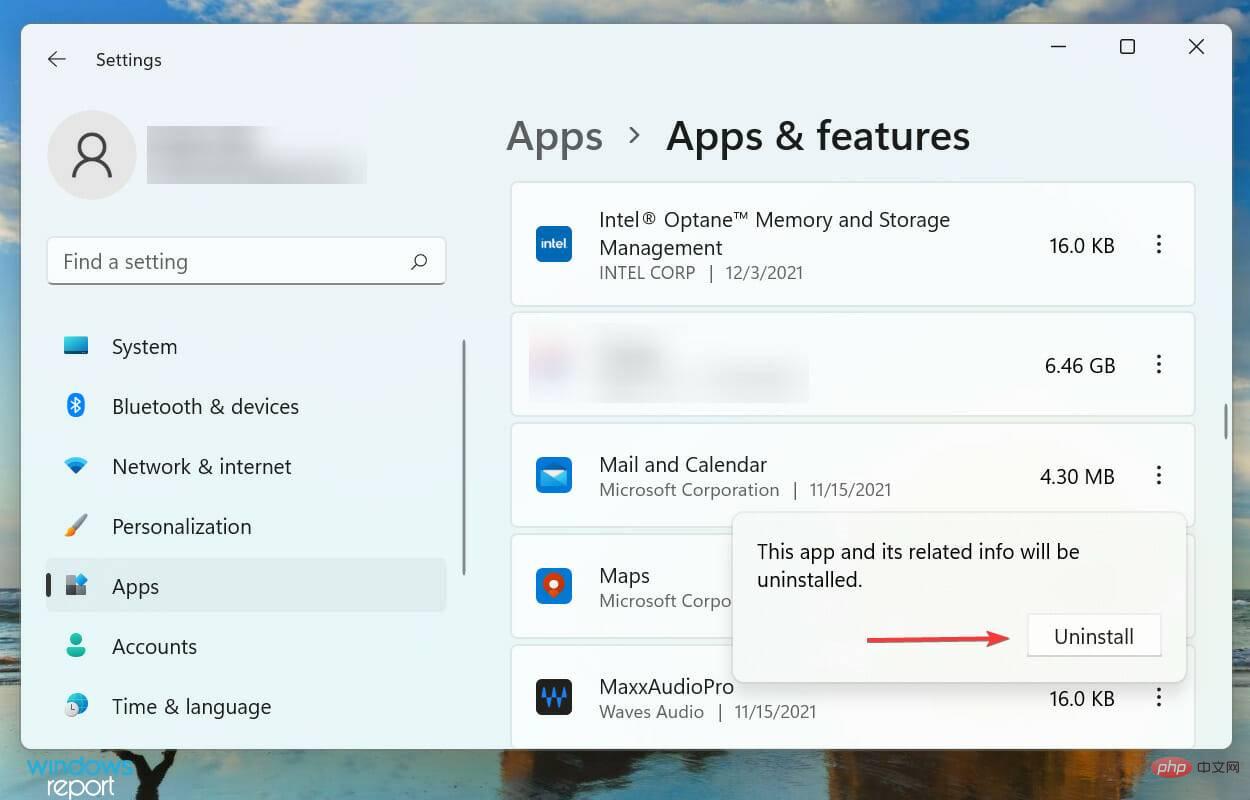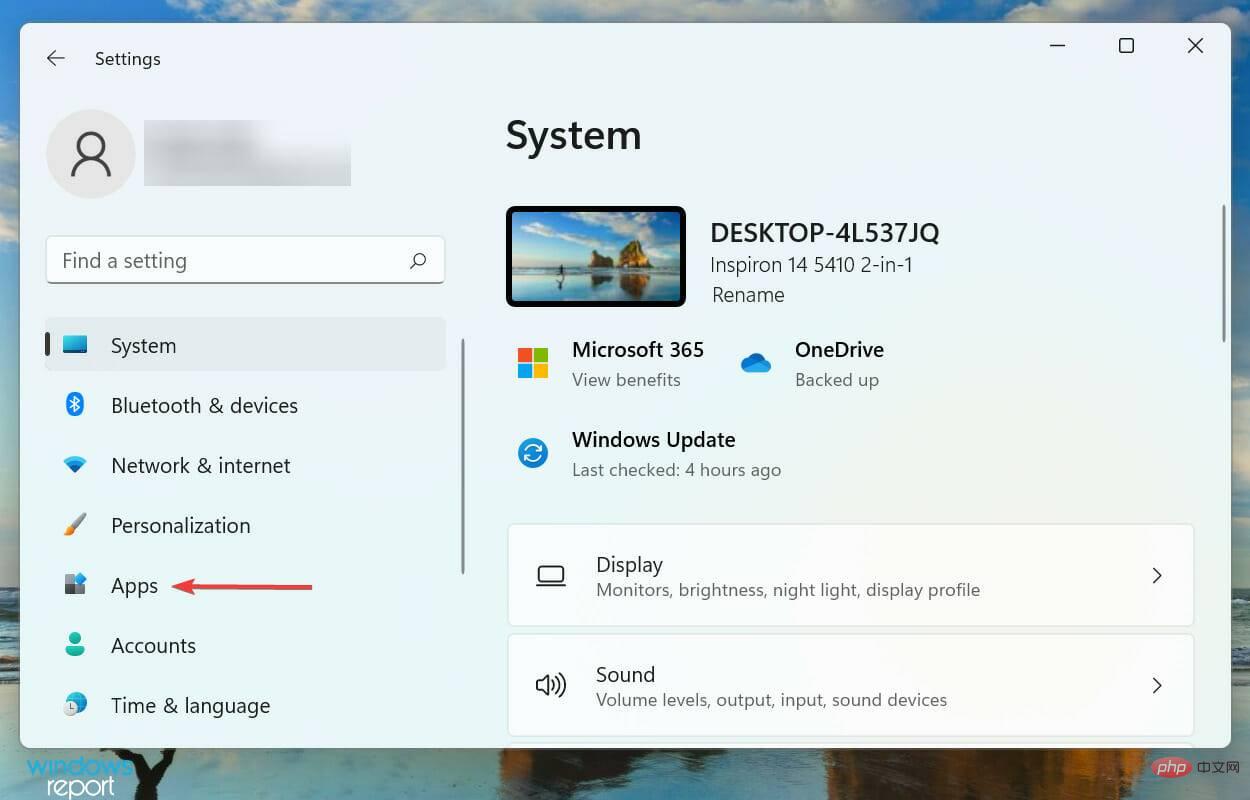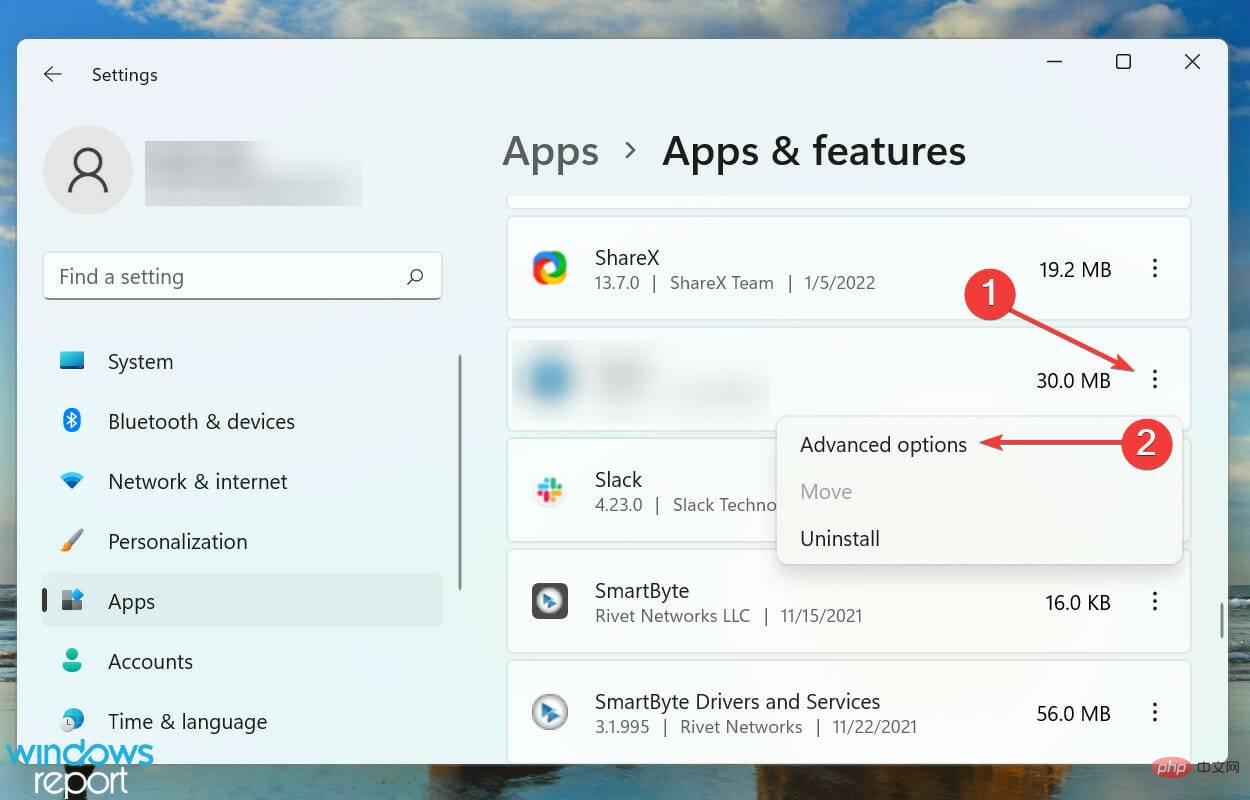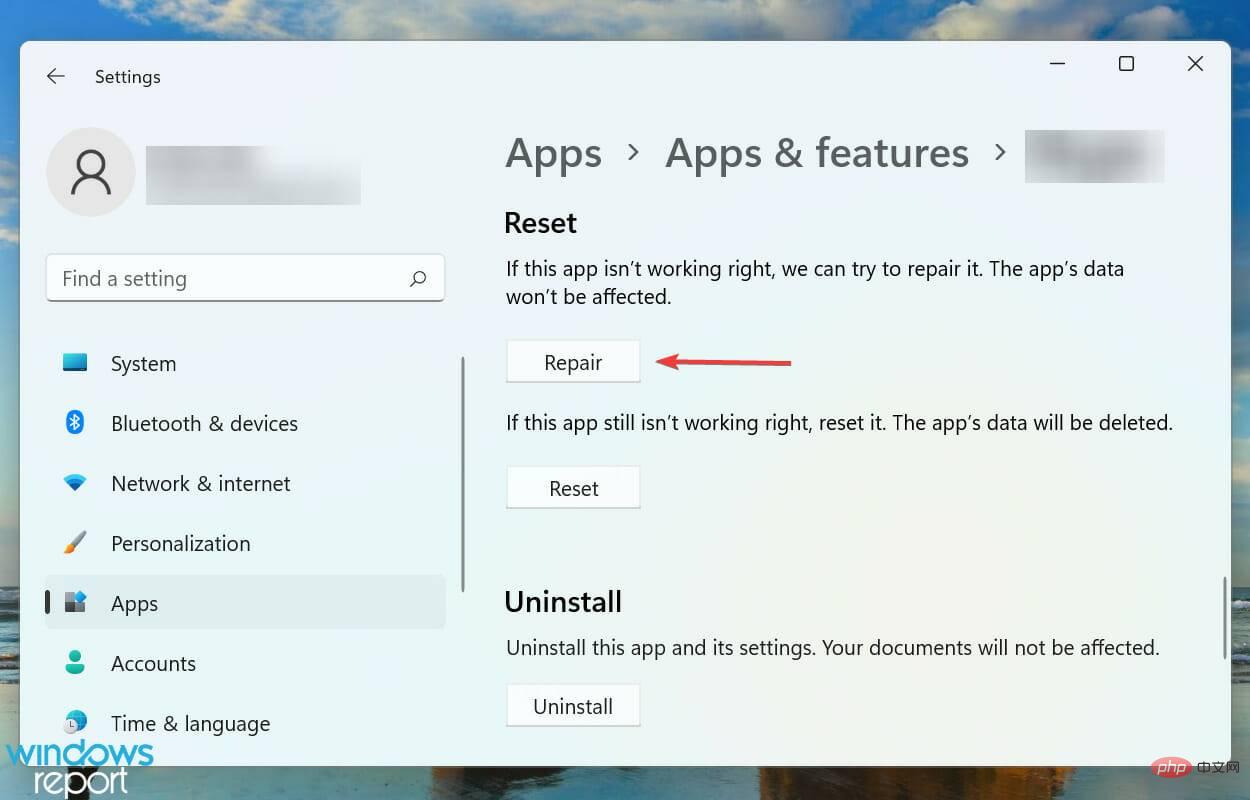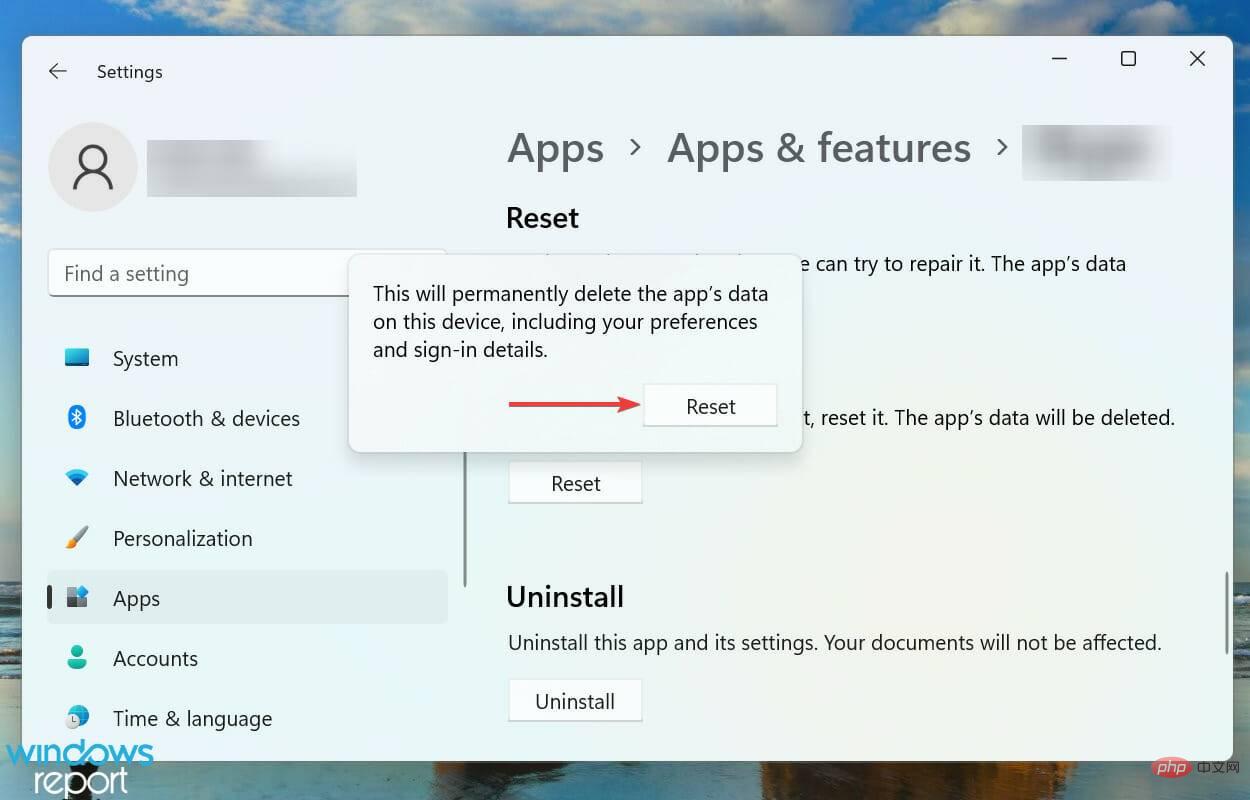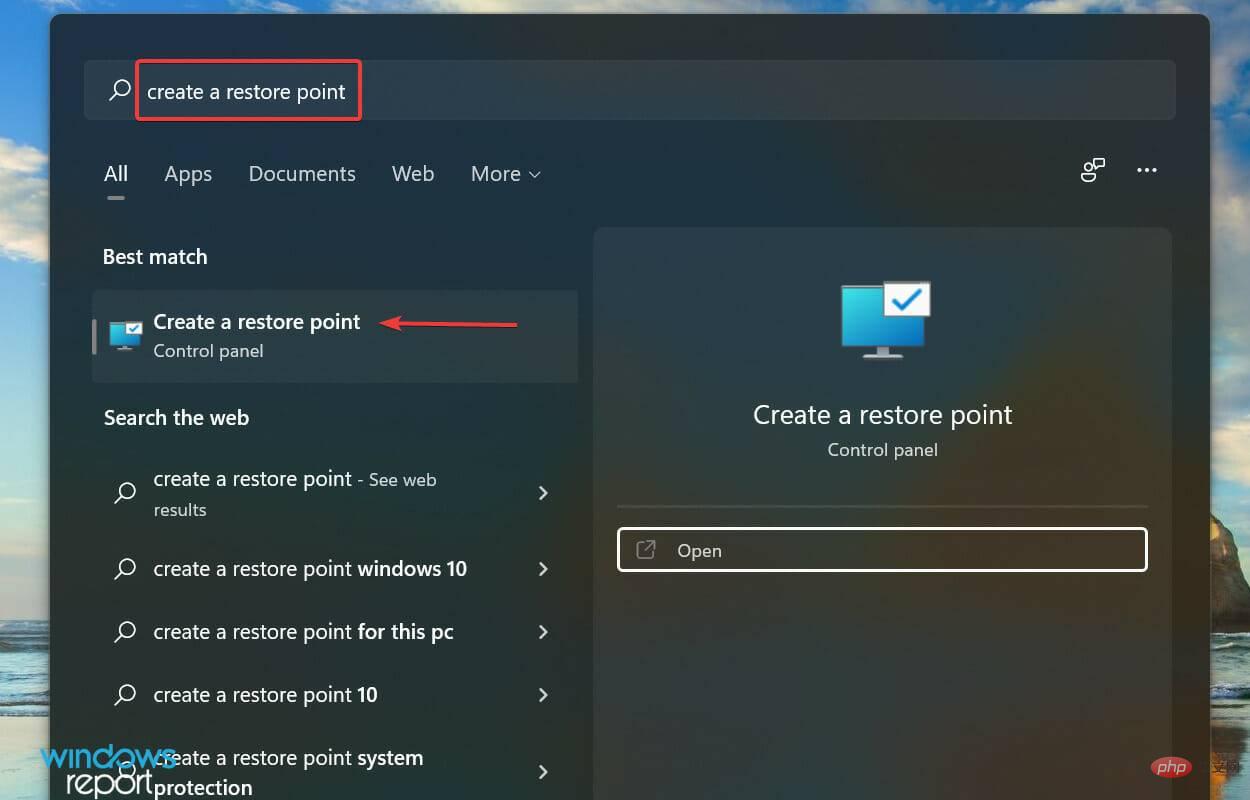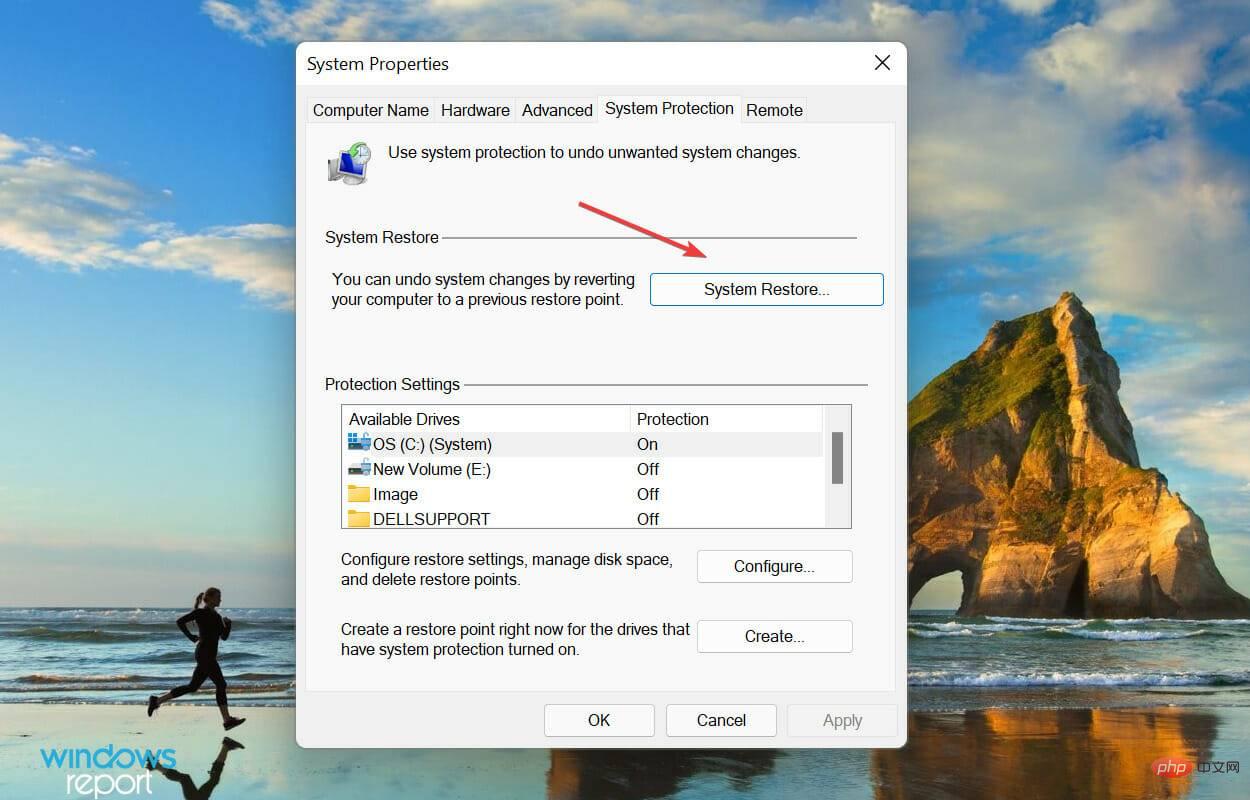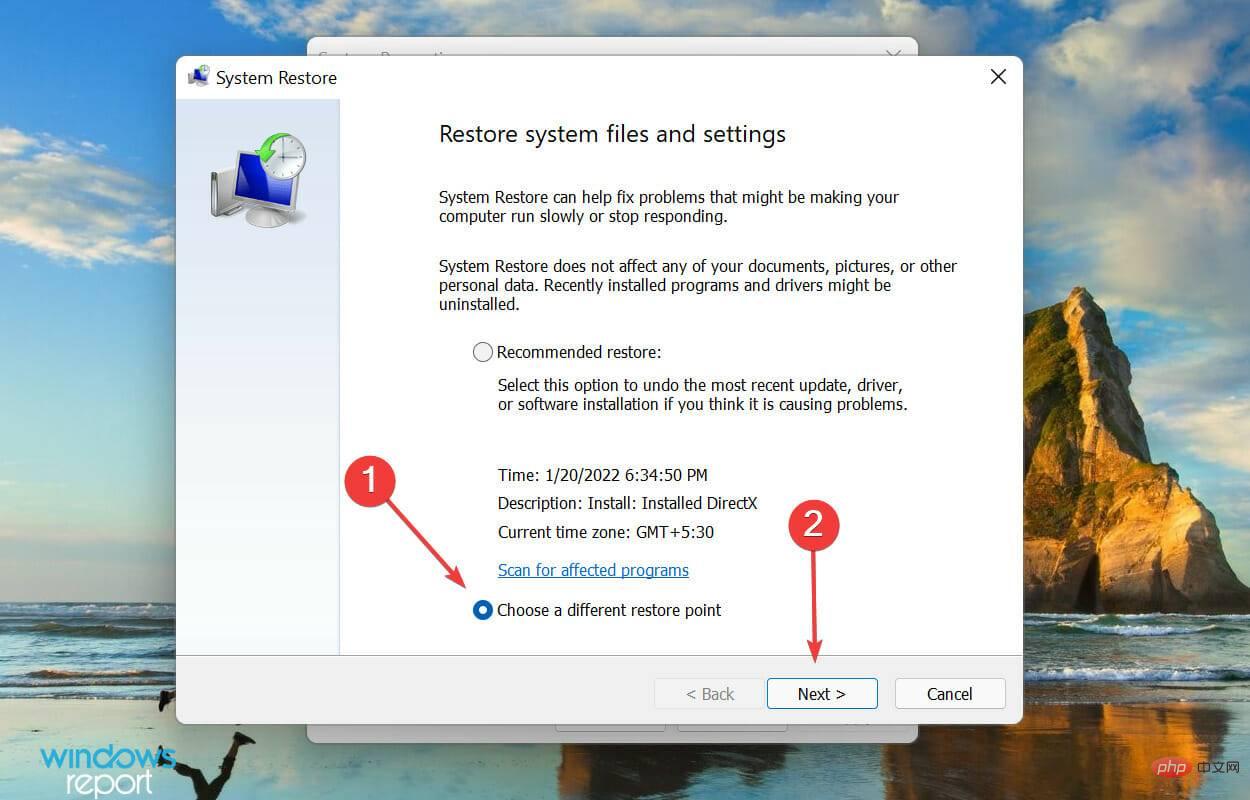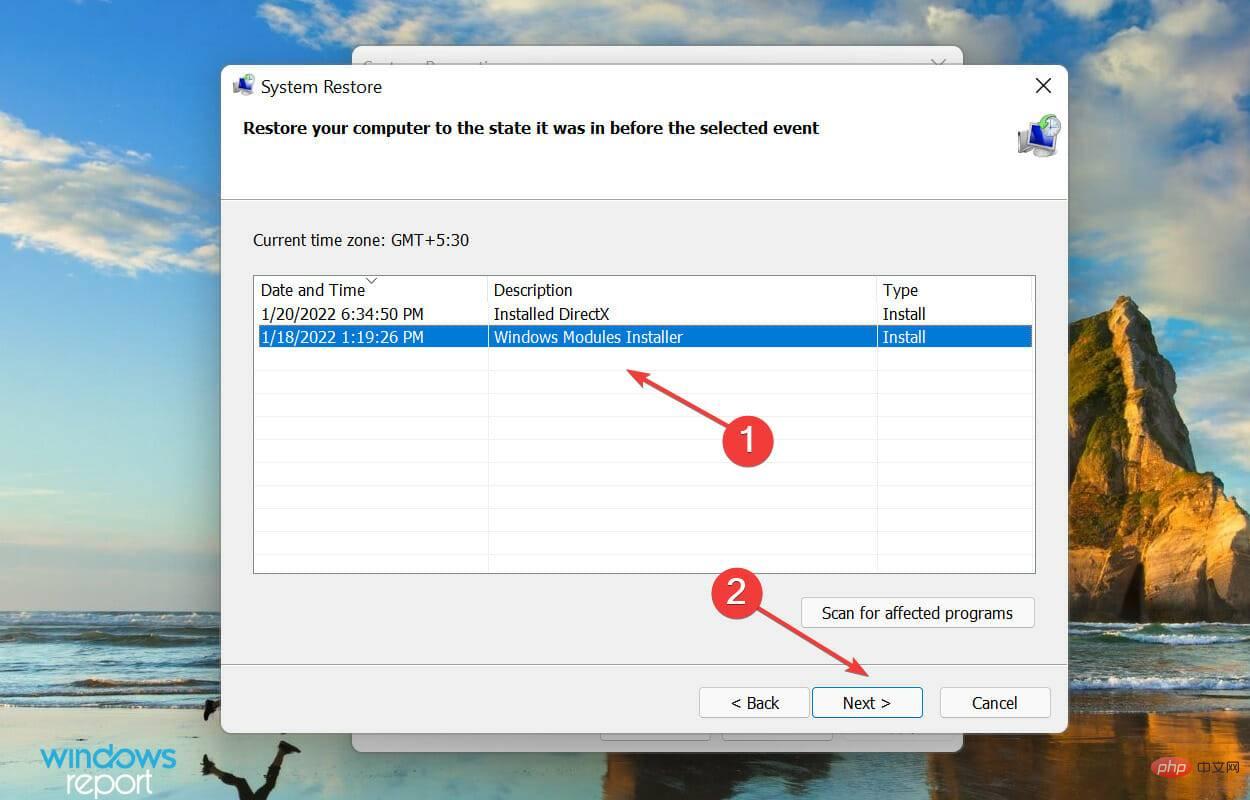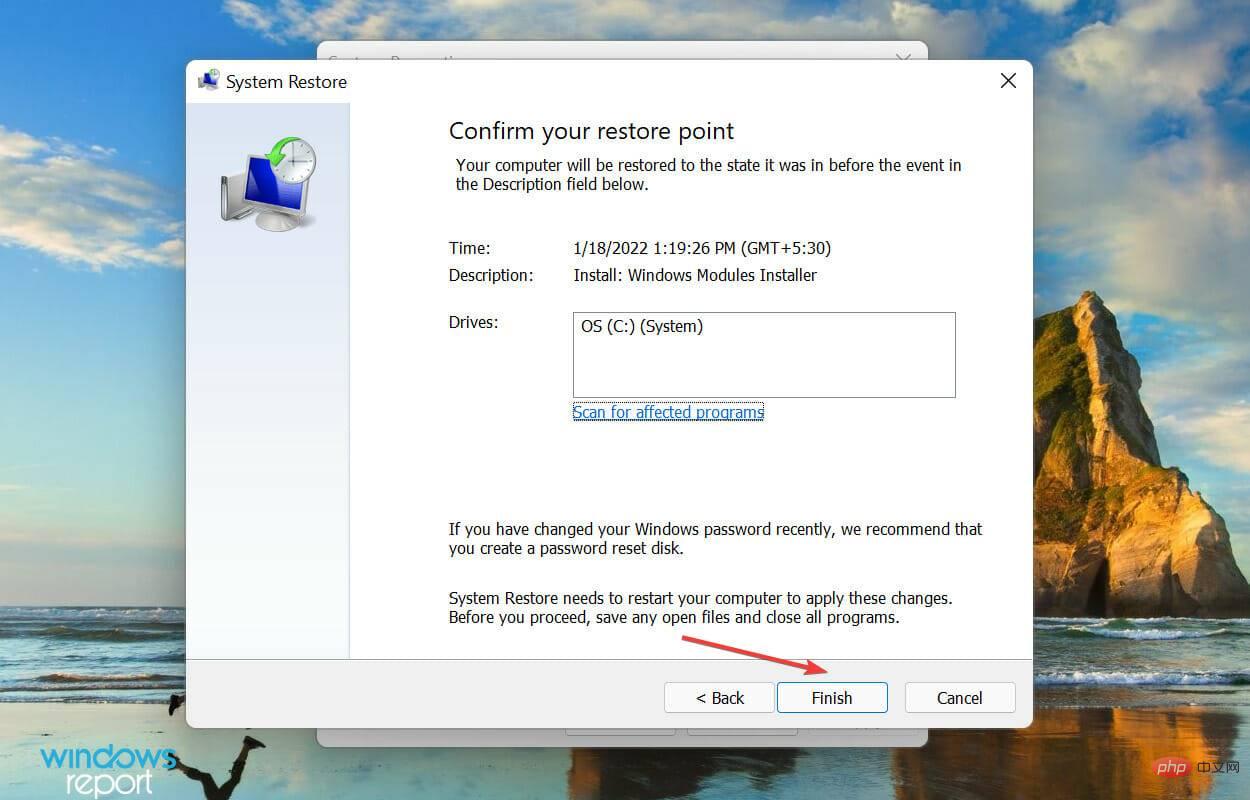How to resolve runtime errors in Windows 11?
We use various applications or programs every day, whether it is for work, networking or other needs. However, some users reported encountering runtime errors in Windows 11.
This problem usually occurs when you try to launch an application, and is accompanied by a box that sometimes mentions the cause, the affected program, and/or the error code. This information may be useful during troubleshooting exercises.
Since many users are facing this issue, we decided to write this tutorial specifically to help you understand the root cause and guide you through the most effective fixes for runtime errors in Windows 11.
What causes runtime errors in Windows 11?
When dealing with runtime errors in Windows 11, you can't immediately pinpoint a single problem unless the error box itself indicates something. Common reasons behind the error are given below:
- A trivial error
- Missing permissions
- Outdated drivers
- Conflicting apps Program
- System infected with malware
- Problems with the application installation itself
If you are able to identify the issue based on the error box and available information, simply go to the relevant fix and Execute it. However, you can quickly eliminate runtime errors in Windows 11 by following the steps in the order listed.
How to fix runtime errors in Windows 11?
1. Restart the computer
- Press Alt F4StartClose the Windows box, click the drop-down menu, Then select Restart from the list of options.

- Click OK to restart the computer.

Mostly, this is a trivial bug that causes runtime errors in Windows 11. And, these can be easily fixed with a simple reboot. When you restart your PC, the operating system reloads and any errors that caused it are instantly eliminated.
2. Install the latest version of Microsoft Visual C Redistributable package
- Press Windows S to start the "Run" command in the text field Type appwiz.cplEnter into the app, then tap or click OK to launch the Programs and Features window.

- Find and select the Microsoft Visual C Redistributable package and click Uninstall at the top.

- Click Yes on the pop-up UAC (User Account Control) prompt.

- Again, click Uninstall in the window that appears. Similarly uninstall other similar software packages.

- Now, visit the official Microsoft website and reinstall all the packages you uninstalled earlier.

- Once the download process is complete, double-click the file to launch the setup.

- Next, check the I agree to the license terms and conditions checkbox and click Install at the bottom.

If an error box pops up about Microsoft Visual C, it may be helpful to uninstall it and then reinstall the latest version. Once completed, check if the runtime error in Windows 11 has been fixed.
3.Run the application with administrative privileges
- Right-click the problematic application's launcher (.exe) file and select Properties from the context menu.

- Navigate to the Compatibility tab from the top.

- Next, check the Run this program as an administrator checkbox and click OK at the bottom to save changes and close the window.

- Check if the error has been fixed. If not, revert the changes you just made.
4. Update the graphics card driver
- Press Windows S to launch the search menu and enter # in the text field at the top ##Device Manager and click on the relevant search results that appear.
 Double-click the
Double-click the - Display Adapter entry here.
 Now, right-click on the graphics adapter and select
Now, right-click on the graphics adapter and select - Update Driver from the context menu.
 Select
Select - Automatically search for drivers from the two options listed in the Update Driver window.

- Press
- Windows I to launch Settings and then list from the left navigation pane Select Applications from the tab list that appears.
 Next, click
Next, click - Apps & Features on the right.
 Find the conflicting app, click the ellipsis next to it, and select
Find the conflicting app, click the ellipsis next to it, and select - Uninstall from the menu.
 Again, click
Again, click - Uninstall in the confirmation prompt that pops up.

6. Repair/Reset problematic apps
- Press Windows I to launch Settings and then list from the left navigation pane Select Application from the tab that appears.

- Click Apps and Features on the right.

- Now, find the application you are having trouble launching, click on the ellipsis next to it and select Advanced options from the popup menu.

- Click the Repair button.

- If the repair process cannot fix the error, click the "Reset" button.

- Again, click "Reset" in the pop-up prompt.

# Whenever you face issues with an app you installed from the Windows Store, fixing or resetting it might help.
When you repair an application, it scans for corruption and replaces any such files, checks the installation, and verifies that registry entries are OK. None of this affects stored data or configured settings.
On the other hand, resetting the app deletes all data and restores it to its original settings. After completing the repair and reset process, check if the runtime errors in Windows 11 are fixed.
7. Perform System Restore
- Press Windows S to launch the Search menu and enter "# in the text field at the top ##Create Restore Point" and click on the relevant search results that appear.
 Click the
Click the - System Restore button.
 Now you can choose to continue using the recommended restore points or manually select one, we chose the latter. Check the
Now you can choose to continue using the recommended restore points or manually select one, we chose the latter. Check the - Choose a different restore point checkbox and click Next.
 Select a restore point from those listed here and click
Select a restore point from those listed here and click - Next.
 Review the restore details and click
Review the restore details and click - Finish to start the process.
 Make sure to save any open files as the computer will restart during this process.
Make sure to save any open files as the computer will restart during this process.
The above is the detailed content of How to resolve runtime errors in Windows 11?. For more information, please follow other related articles on the PHP Chinese website!

Hot AI Tools

Undresser.AI Undress
AI-powered app for creating realistic nude photos

AI Clothes Remover
Online AI tool for removing clothes from photos.

Undress AI Tool
Undress images for free

Clothoff.io
AI clothes remover

Video Face Swap
Swap faces in any video effortlessly with our completely free AI face swap tool!

Hot Article

Hot Tools

Notepad++7.3.1
Easy-to-use and free code editor

SublimeText3 Chinese version
Chinese version, very easy to use

Zend Studio 13.0.1
Powerful PHP integrated development environment

Dreamweaver CS6
Visual web development tools

SublimeText3 Mac version
God-level code editing software (SublimeText3)

Hot Topics
 1389
1389
 52
52
 How to disable driver signature enforcement in Windows 11
May 20, 2023 pm 02:17 PM
How to disable driver signature enforcement in Windows 11
May 20, 2023 pm 02:17 PM
Microsoft has built several security features into Windows to ensure your PC remains secure. One of them is driver signature enforcement in Windows 11. When this feature is enabled, it ensures that only drivers digitally signed by Microsoft can be installed on the system. This helps most of the users to a great extent as it protects them. But there is a downside to enabling driver signature enforcement. Suppose you find a driver that works for your device, but it is not signed by Microsoft, although it is completely safe. But you won't be able to install it. Therefore, you must know how to disable driver signing in Windows 11
 Error code 22: How to fix graphics device driver Try updating graphics driver or clearing CMOS
May 19, 2023 pm 01:43 PM
Error code 22: How to fix graphics device driver Try updating graphics driver or clearing CMOS
May 19, 2023 pm 01:43 PM
What does graphics device error code 22 mean and what causes it? When you encounter error code 22, you will always see the error message This device is disabled. (Code 22). You can view more details about this graphics device driver error code 22 by going to the Device Status area in the device properties. We also discussed Error code 11 in Windows 43. You can also check out our guide on how to fix graphics device error code 31 on your PC. Device is actually disabled: The device in question may throw you this error code 22 and is actually disabled. There are driver issues: Incompatible or corrupted driver files can also cause multiple issues with the device program. Drivers are not the most
 4 Ways to Enable or Disable Microsoft Store on Windows 11 or 10
May 14, 2023 am 10:46 AM
4 Ways to Enable or Disable Microsoft Store on Windows 11 or 10
May 14, 2023 am 10:46 AM
Here are some possible reasons why you need to disable Microsoft Store: Stop unwanted notifications. Preserves data by limiting the background processes of the Microsoft Store to improve security or privacy Addresses some issues related to the Store or the apps it installs. Restrict children, family members, or other users from downloading applications without permission. Steps to Disable or Enable Windows Store Before following this tutorial, disabling the Microsoft Store will also stop the installation of any apps that require its services. To use the store, users need to enable its service in the same way as blocking it. 1. Block WindowsStore background service Let us from restricting Microsoft Store as
 How to fix Windows 11 activation error 0xc004c060
May 17, 2023 pm 08:47 PM
How to fix Windows 11 activation error 0xc004c060
May 17, 2023 pm 08:47 PM
Why am I encountering Windows 11 activation error 0xc004c060? First make sure you are using genuine Windows and that the license key is valid. Also, check if it was obtained from an official source and if the key is suitable for the installed OS version. If there is an issue with any of these, you may encounter Windows 11 activation error 0xc004c060. So be sure to verify these and if you find everything is in order, move on to the next section. If you obtained the key through unreliable means or believe that the installed copy is a pirated version, you will need to purchase a valid key from Microsoft. In addition to this, misconfigured settings, missing
 0x80010105: How to fix this Windows update error
May 17, 2023 pm 05:44 PM
0x80010105: How to fix this Windows update error
May 17, 2023 pm 05:44 PM
Microsoft regularly releases Windows updates to improve functionality or increase the security of the operating system. You can ignore some of these updates, but it's important to always install security updates. While installing these updates, you may encounter error code; 0x80010105. An unstable connection usually causes most update errors, and once the connection is reestablished you're good to go. However, some require more technical troubleshooting, such as the 0x80010105 error, which is what we will see in this article. What causes WindowsUpdate error 0x80010105? This error may occur if your computer has not been updated in a while. Some users may have permanently disabled W for their reasons
 How to fix runtime error 339 on Windows 11/10
May 13, 2023 pm 11:22 PM
How to fix runtime error 339 on Windows 11/10
May 13, 2023 pm 11:22 PM
There can be several reasons why runtime error 339 occurs when running a program. Some of them may be that some ocx or dll files are missing, damaged or the dll or ocx is not registered. This would be an annoying experience for the smooth execution of the application. Here are some of the possible error messages you may see for Runtime Error 339 Error – Runtime Error 339: Component DUZOCX32.OCX is not registered correctly or the file is missing. Error – Runtime Error 339. Component MSMASK32.ocx or one of its dependencies is not registered correctly; the file is missing or invalid. Error – Runtime Error '339': Component 'FM20.DLL' or one of its dependencies was not correctly noted
 How to disable display scaling for high DPI settings in Windows 11 or 10
May 22, 2023 pm 10:11 PM
How to disable display scaling for high DPI settings in Windows 11 or 10
May 22, 2023 pm 10:11 PM
The default display scaling feature on Windows 10 or later is a core component of the Windows operating system. But sometimes, this feature of certain apps can cause compatibility issues, unreadable text, blurry logos, and ultimately, app crashes. This can be a huge headache if you're dealing with 2160p or higher resolutions. There are many ways to disable the default display scaling feature on high DPI settings. We've selected the best ones and detailed step-by-step instructions for each process. How to Disable Display Scaling on High DPI Settings There is a way, all you have to do is disable high DPI scaling for a single application, and there is a way to do it for the entire Window
 How to disable core parking on Windows 10
May 16, 2023 pm 01:07 PM
How to disable core parking on Windows 10
May 16, 2023 pm 01:07 PM
If you are a Windows user and want to disable the core parking functionality in your system, this article will guide you through the process. What is core parking? The core parking function is a power saving mechanism. It puts some of your processors into a sleep mode that doesn't perform any tasks and consumes very little or no power. This helps reduce energy consumption and therefore heat in the system. These cores are unparked when needed. Few users need to disable this feature, especially gamers. Disabling this feature will improve your system performance. Disable Windows Core Parking using Windows Registry Editor Step 1: Use Windows + R keys simultaneously to open the run prompt. Step 2: At the run prompt



